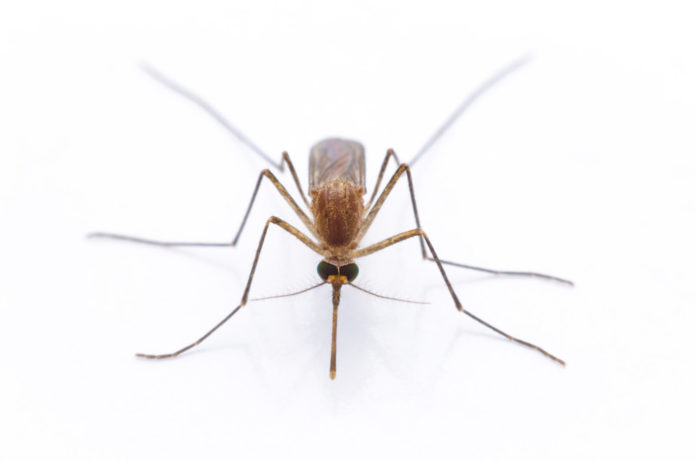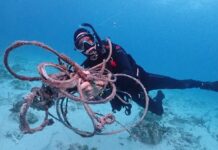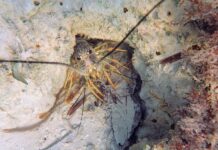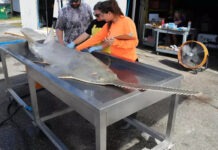Comments will close on Oxitec’s application to the EPA on Oct. 11.
Oxitec is proposing a trial of its “2nd Generation” technology in the U.S. to use biologically modified mosquitoes to combat the spread of infectious diseases via the Aedes aegypti mosquito. Although it is not official and there are no contracts in place, officials at Oxitec — a U.S.-owned, U.K.-based company that develops biologically engineered solutions to insect control issues — has openly courted the Florida Keys in the past.
At about the same time as the Keys Weekly published an in-depth article about Oxitec’s new technology three weeks ago, genetically modified mosquitoes were making international headlines. The interest sparked from a study published in the Scientific Reports journal titled “Transgenic Aedes aegypti Mosquitoes Transfer Genes into a Natural Publication” about an Oxitec trial. The paper refers to the company’s 1st Generation technology of a field trial conducted in Brazil from 2013 to 2015.
Oxitec has filed a complaint and asked for a peer review of the study from Nature Research, publishers of the journal, to address what it says is a range of misleading and speculative statements.
In recent trials in Brazil, releases of these 2nd Generation male mosquitoes achieved up to 96% suppression of wild Aedes aegypti populations in the city of Indaiatuba. — Oxitec
“The paper explores the flow of genes between the local population of Aedes aegypti and the natural background strain of OX513A (Oxitec’s genetically modified mosquito). The gene transfer referenced in the title does not refer to the persistence of Oxitec’s self-limiting and marker genes,” said Nathan Rose, head of scientific and regulatory affairs for Oxitec. “Yes, some of the background genes were present 27 months after the trial ended, but they decreased in time until they completely disappeared. That was unsurprising to us. We knew that about 3 to 5 percent of the 1st Generation offspring would survive, and we published that in our first paper in 2007 and shared that information with regulators. The study authors confirmed that with good data.”
Rose said the rest of the study descends into speculation not suited to a reputable scientific paper. For example, Rose cited the paper’s hypothesis that introducing background genetics would lead to “hybrid vigor,” or the idea that offspring’s traits are enhanced due to the mixing of genetic contributions of its parents.
“There is no data to back up this claim. In fact, the study showed the opposite, that it disappeared over time. If indeed, it were some type of ‘super mosquito,’ then the genes would have persisted,” he said.
The paper also said the genetically engineered mosquito is more susceptible to insecticide resistance.
“That’s frustrating because that’s the exact opposite of what we’ve done with the Oxitec mosquito,” Rose said. He said Oxitec has purposely made the mosquito sensitive to the most common insecticides. In fact, Rose said, the most overlooked part of the paper deals with the success of the trial in Brazil — that the test achieved 85% suppression of mosquitoes in the wild.
“Not only was it not creating a ‘super mosquito,’ it was reducing the local wild mosquito population that are the real threats because they are the ones that spread disease,” he said.
Barry Wray of the Florida Keys Environmental Coalition isn’t convinced. He said Oxitec is guilty of “unprofessional, unscientific behavior.”
“They have supplanted scientific conversation and quantitative results with market speak. They want to get to market so they can profiteer,” Wray said. “The level of information disclosed about the mosquito is just a theory of operations. Just because technology has improved doesn’t mean it’s perfect.”
Wray said that before a trial of the genetically modified mosquito takes place, there need to be three controls in place: identification of the permitting authority; a clear outline of the protocols for the release of the genetically modified mosquito (for example, whether it can happen next to a school or when the wind is blowing); and, third, criteria for success and failure.
Dr. John W. Norris III, the chief of staff of the Lower Keys Medical Center in Key West, led the charge in 2018 to stop the Oxitec approval from EPA and even visited Washington, D.C. to meet with regulators personally. He said his concerns about Oxitec’s new technology are the same as the old technology. It has nothing to do with genetic modification (the “nature finds a way” argument) but about spreading antibiotic resistance and the ability to treat “super bugs” with one of the strongest, most versatile antibiotics on the market — tetracycline.
In both versions of the technology, Oxitec takes a biologically modified mosquito and uses tetracycline to keep it alive to adulthood so that it can mate. A very basic layman’s explanation of the procedure is to say that when the tetracycline applications stop (when the mosquitoes are released into the wild), the mosquitoes and offspring die.
In the 2nd generation technology, only female breeders are treated with tetracycline in the lab in the U.K. Then the male-only eggs can be shipped globally for distribution. Oxitec said that the eggs and the adult male mosquitoes that hatch from them are not exposed to tetracycline. Dr. Norris said that is not the full story.
“The act of giving birth — whether it’s a mosquito mother or human mother — is a very germy, gooey thing,” he said.
In his comment to the EPA, he phrased it scientifically.
“The microbiome of the breeding females should be expected to be heavily weighted for tetracycline resistant bacteria … As we are used to chicken egg recalls for the bacteria salmonella, you must challenge the microbiome transfer from mosquito mother to child … Females feed on humans causing risk of transfer to humans of possibly pathogenic antibiotic resistant bacteria.”
While Norris acknowledges that tetracycline is a common genetic tool switch used in many scientific experiments, he said those only happen in a controlled environment, i.e. the lab. If approved, Oxitec’s trial would happen in the wild and possibly put his patients with compromised immune systems at risk.
Rose, the Oxitec scientist, agreed that tetracycline as a genetic tool switch is commonly used in lab scenarios. But he said the antibiotic is also used heavily in Florida for agricultural citrus health and medicinal purposes. Furthermore, he said, the amount of tetracycline used to treat the female “breeders” for the purpose of a trial in the U.S. is minuscule.
“It would be about 5 grams, comparable to a teaspoon of sugar, or the equivalent of two courses (10 days each) of antibiotics prescribed to a human to fight an infection,” he said. “In comparison, in Florida, the agricultural use of antibiotics, including tetracycline, is 88 million times higher.”
In his comments to the EPA, Dr. Norris has asked for more time to study the new Oxitec application and for the agency to extend the comment period.
What the comments say
For more information about the EPA application, or to make or read comments, visit www.federalregister.gov and search “oxitec.”


























